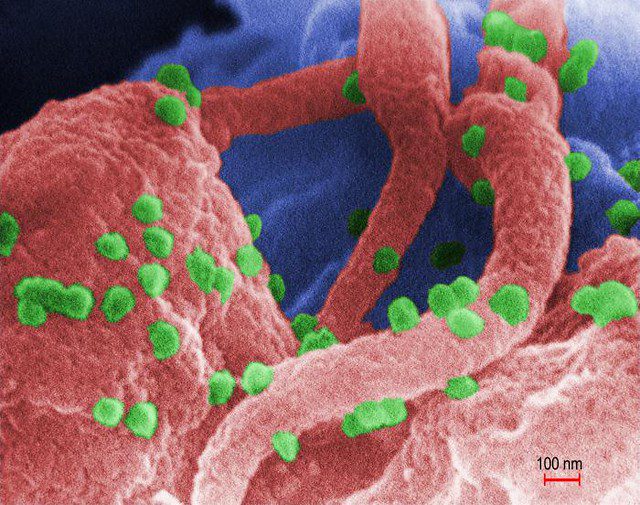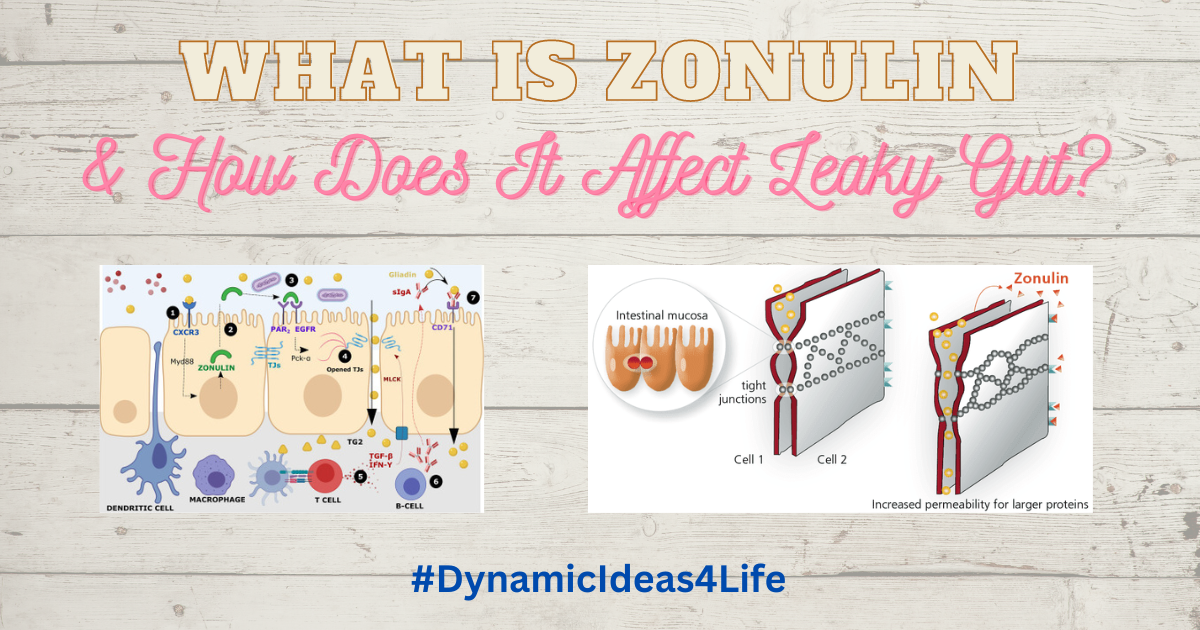Leaky Gut and Immunodeficiency – how are both of these conditions linked? If you are wondering about the answer to this question then THESE are two health conditions that have recently gained a lot of attention.
Leaky gut, also known as Increased intestinal permeability has been proposed as a potential factor in the development of various health conditions.
Of these, this includes today’s topic Immunodeficiency disorder, and here is why…
So, Leaky Gut which I have covered in a few articles now is a condition that occurs when the tight junctions in the intestinal lining become weakened, allowing partially digested food, bacteria, and other substances to enter the bloodstream.
When this happens, in many cases it can trigger an autoimmune response and lead to inflammation.
Gut Inflammation is a known precursor to Immunodeficiency and has been found to play a role in the development of a whole host of diseases and health conditions.
So, Immunodeficiency is where a full or partial impairment of the Immune System occurs making it more difficult for the body to fight off disease and illness. And this is definitely something that should be treated. In this regard, it is important to find a solution to help repair the gut lining and the effects of a leaky gut.
I shall definitely cover this in this article very soon but for now, let’s continue and delve into this question deeper.
Leaky Gut and Immunodeficiency – How Are They Both Linked – What You Should Know…

So as much as the relationship between leaky gut and immunodeficiency is not yet understood completely (there is still much more research that is needed to determine the exact mechanisms involved) it definitely is a real thing.
Despite the fact that Immunodeficiency can be caused by other things such as genetics and malnutrition yet still detrimental gut health is something that must be highlighted.
Why In this article, we will look to explore the relationship between leaky gut syndrome and immunodeficiency, and how they are both connected.
For anyone reading this that has any concerns about the consequences for their health that a Leaky gut can be responsible for then here are just some of the things that you should know.
What Causes Leaky Gut Syndrome
Leaky gut syndrome when the gut becomes more permeable and allows harmful substances, such as bacteria, toxins, and undigested food particles, to escape into the bloodstream and cause inflammation is a common problem with a lot of people.
Symptoms of a leaky gut syndrome can include abdominal pain, bloating, gas, diarrhea, constipation, and food sensitivities such as gluten and dairy intolerance.
Other symptoms may include fatigue, skin rashes, joint pain, and mood imbalances.
The exact cause of Increased Intestinal Permeability is not fully understood, but it is believed to be related to a combination of factors, where gut inflammation may be caused by things such as a diet high in processed foods, stress and hormonal imbalance, and the use of certain medications, such as antibiotics.
How About Immunodeficiency?

Immunodeficiency is a condition in which the immune system is not functioning properly. This can result in increased susceptibility to infections, as well as other health problems.
There are a number of different types of immunodeficiency, including primary immunodeficiency, which is caused by a genetic defect, and secondary immunodeficiency, which is caused by environmental factors, such as infections, malnutrition, and certain medications.
Symptoms of immunodeficiency can vary depending on the type and severity of the condition. Common symptoms can include frequent infections, slow healing of wounds, and a general feeling of fatigue and weakness.
In some cases, immunodeficiency can also lead to the development of autoimmune disorders, in which the immune system attacks the body’s own tissues.
The Link Between Leaky Gut Syndrome and Immunodeficiency
The link between leaky gut syndrome and Immunodeficiency is fairly complex and not yet fully understood. However, it is believed that the gut-immune system connection plays a critical role in both conditions.
The gut is home to trillions of bacteria, known as the gut microbiome, which play a vital role in maintaining a healthy immune system. When the gut barrier is damaged and becomes leaky, harmful substances, such as bacteria and toxins, can escape into the bloodstream and trigger an immune response. This can cause inflammation and weaken the immune system, leading to increased susceptibility to infections and other health problems.
Additionally, the gut microbiome has been shown to play a key role in the development and functioning of the immune system. A healthy gut microbiome helps to train the immune system to recognize harmful substances and respond appropriately.
However, when the gut microbiome is disrupted, such as in the case of a leaky gut syndrome, the immune system can become dysregulated, leading to a weakened immune response.
Seeking Treatment For Leaky Gut
The treatment of leaky gut syndrome and immunodeficiency depends on the underlying cause of the condition. In the case of a leaky gut syndrome, treatment may involve dietary changes, such as reducing the consumption of processed foods and increasing the consumption of fiber-rich foods, as well as the use of probiotics to support the gut microbiome.
For immunodeficiency, treatment may involve addressing the underlying cause, such as infection or malnutrition, as well as supporting the immune system through the use of immunoglobulin or other immunotherapy.
In some cases, individuals with immunodeficiency may also need to receive regular injections of immunoglobulin to help boost their immune response.
In addition to these specific treatments, there are also a number of general steps that individuals can take to support their overall health and well-being. These may include:
- Eating a balanced diet that is rich in fruits, vegetables, and whole grains
- Engaging in regular physical activity
- Getting enough sleep
- Managing stress through relaxation techniques, such as meditation or yoga
- Avoiding exposure to toxins, such as tobacco smoke and pollutants
My Top Recommendation
I would certainly have to agree with much that is said above. Make changes to your lifestyle, get more exercise, stop drinking, stop smoking, and find ways to better manage stress. Also, make sure you are eating the right foods, and get plenty of dietary fiber, vitamins, minerals, and good nutritious food such as fruit and vegetables.
These are definitely my prerequisites but what I would also suggest is investing in certain dietary supplements for added effect. So firstly, I would recommend something to help repair the gut lining. Bone broth (if you are not vegetarian or vegan) might be a good solution here because it contains Collagen and the likes of Glycine and Proline.
I would suggest here Biome Breakthrough by Bioptimizers here or as a cheaper alternative to make your own Bone Broth.
Then you should also look at a good source of Probiotics. Pickles, preserves, and certain sauces or a good dietary options but there are good supplements you can try too – look for those with DR Caps (delayed release) my top two picks are Seed Synbiotic and MicroBiome Plus+.
However, Prebiotic Fiber is also important and my top pick currently is Organic Super Fiber by Organixx.
In Conclusion:
Of course, Leaky gut syndrome and immunodeficiency are complex health conditions that are closely linked. The gut-immune system connection plays a critical role in both conditions, and the health of the gut microbiome is essential for a healthy immune response.
While the exact relationship between leaky gut syndrome and immunodeficiency is still being explored, it is clear that both conditions can have a significant impact on overall health and well-being.
To help prevent and manage these conditions, individuals should focus on maintaining a healthy gut microbiome through a balanced diet, regular physical activity, and stress management.
It may also be wise to seek out specific treatments, such as dietary changes, probiotics, or immunoglobulin, to better support your health and well-being.
With the right care and attention, individuals can help to improve their gut health and immune function, reducing their risk of developing a range of health problems and improving their overall quality of life.
Leaky Gut and Immunodeficiency FAQ:
Yes, a leaky gut can weaken the immune system. This occurs because a leaky gut allows harmful substances, such as bacteria and toxins, to enter the bloodstream, triggering an immune response and increasing inflammation. [R]
Over time, this can tax the immune system and potentially lead to decreased function and increased susceptibility to illness.
Leaky Gut Syndrome has been implicated in the development of several autoimmune diseases, including:
~ Rheumatoid arthritis
~ Inflammatory bowel disease (IBD)
~ Type 1 diabetes
~ Multiple sclerosis (MS)
~ Lupus
~ Hashimoto’s thyroiditis
However, it’s important to note that while a leaky gut may contribute to the development of an autoimmune disease, it is not always the sole cause, and other factors, such as genetics and environmental triggers, also play a role.
Also, further research is needed to fully understand the relationship between leaky gut and autoimmune diseases.
Yes, gut issues can contribute to the development of autoimmune disorders. A leaky gut, which occurs when the gut lining becomes permeable and allows harmful substances, such as bacteria and toxins, to enter the bloodstream, can trigger an immune response and increase inflammation.
Over time, this can increase the risk of developing an autoimmune disorder.
Additionally, imbalances in the gut microbiome, such as an overgrowth of harmful bacteria, can also contribute to the development of autoimmune disorders by affecting the immune system and increasing gut inflammation.
Yes, a leaky gut has been implicated in the development of lupus, an autoimmune disease that causes inflammation and damage to various parts of the body. A leaky gut can increase systemic inflammation, which can trigger the immune system to attack its own tissues, leading to the development of autoimmune diseases like lupus.
Yes, a leaky gut can cause systemic inflammation. This occurs when the gut lining becomes permeable and allows harmful substances, such as bacteria and toxins, to enter the bloodstream, triggering an immune response and increased inflammation.
Systemic inflammation can contribute to a wide range of health problems, including autoimmune diseases, chronic pain, and other conditions.
It’s important to note that while a leaky gut can cause systemic inflammation, other factors, such as stress, poor diet, and certain medications, can also contribute to this type of inflammation.
Additionally, systemic inflammation can also contribute to the development of a leaky gut, creating a vicious cycle of the body becoming repeatedly Inflamed.
There are several steps you can take to help heal your gut and boost your immune system:
1.) Eat a nutritious diet: Focus on eating whole, unprocessed foods, such as vegetables, fruits, nuts, and seeds, and minimize your intake of sugar, processed foods, and artificial additives.
2.) Reduce stress: Chronic stress can have a negative impact on gut health and the immune system, so it’s important to find healthy ways to manage stress, such as through exercise, mindfulness practices, or therapy.
3.) Get enough sleep: Aim for 7-9 hours of quality sleep each night to support gut and immune system health.
4.) Avoid gut irritants: Certain foods, such as gluten and dairy, can be problematic for some people and contribute to gut inflammation. Avoiding these foods or identifying other gut irritants through elimination diets or food sensitivity testing may help.
5.) Take probiotics: Probiotics are beneficial bacteria that can help support gut health and boost the immune system. You can get probiotics through supplements or by consuming probiotic-rich foods, such as kefir, kimchi, and sauerkraut.
It’s important to remember that everyone’s gut and immune system are unique, so what works for one person may not work for another. Work with a healthcare professional to determine the best approach for your specific needs.
Yes, it is estimated that about 70% of the immune system is located in the gut. This is because the gut is the first line of defense against harmful substances, such as bacteria, viruses, and toxins, that enter the body through food and drink.
The gut is lined with immune cells and is home to a complex community of beneficial bacteria, known as the gut microbiome, which plays a crucial role in supporting gut and immune system health.
Maintaining a healthy gut is essential for overall health and wellness, as a healthy gut helps to prevent harmful substances from entering the bloodstream and triggering an immune response while supporting the proper functioning of the immune system.
References:
- Fasano, A. (2011). Leaky gut and autoimmune diseases. Clinical Reviews in Allergy & Immunology, 42(1), 71-78.
- Berer, K., & Mues, M. (2017). Commensals and the gut immune system. Gut Microbes, 8(4), 356-361.
- Wang, Y., & Kasper, D. L. (2014). The gut microbiome, bacteria, and virus interactions in health and disease. Nature Reviews Microbiology, 12(1), 69-78.
- Al-Lahham, S., & Mølgaard, C. (2018). Nutrition and the gut microbiome. Nutrition & Metabolism, 15(1), 59.
- Elson, C. O., & Foligné, B. (2018). The gut microbiome and immunodeficiency. Frontiers in Immunology, 9, 2201.
- Braaten, D., & Mayer, L. (2017). The gut-liver axis: Pathophysiology and clinical implications. World Journal of Gastroenterology, 23(24), 4275-4282.
- Meijer, K., Verlaan, D. J., & Knol, J. (2017). The gut microbiome and its influence on the development of the immune system. Frontiers in Pediatrics, 5, 150.
- Int J Mol Sci. 2020 Dec; 21(24): 9770. Published online 2020 Dec 21. doi: 10.3390/ijms21249770: Leaky Gut and Autoimmunity: An Intricate Balance in Individuals Health and the Diseased State
Related Posts;





Anxiety and Depression are you magnesium deficient best ways to lower blood sugar BiOptimizers blood pressure supplements blood sugar support supplements Digestive Enzymes Supplement digital products Dr Sam Robbins Exercise Gut Health Healthy Living heart health HFL how to lower blood sugar levels How To Lower Cholesterol insulin resistance joint health supplement Keto keto dieting Keto Diet Weight Loss leaky gut supplements leptin resistance list Magnesium deficiency Matt Gallant mental health Mind and Mood Probiotics multivitamins Nootropics nutrient supplements Probiotics Probiotic Supplements proteolytic enzymes reverse type 2 diabetes stress and anxiety stress relief vitabalance vitapost Wade Lightheart weight loss articles weight loss diet plans weight loss product reviews weight loss supplements weight loss tea








